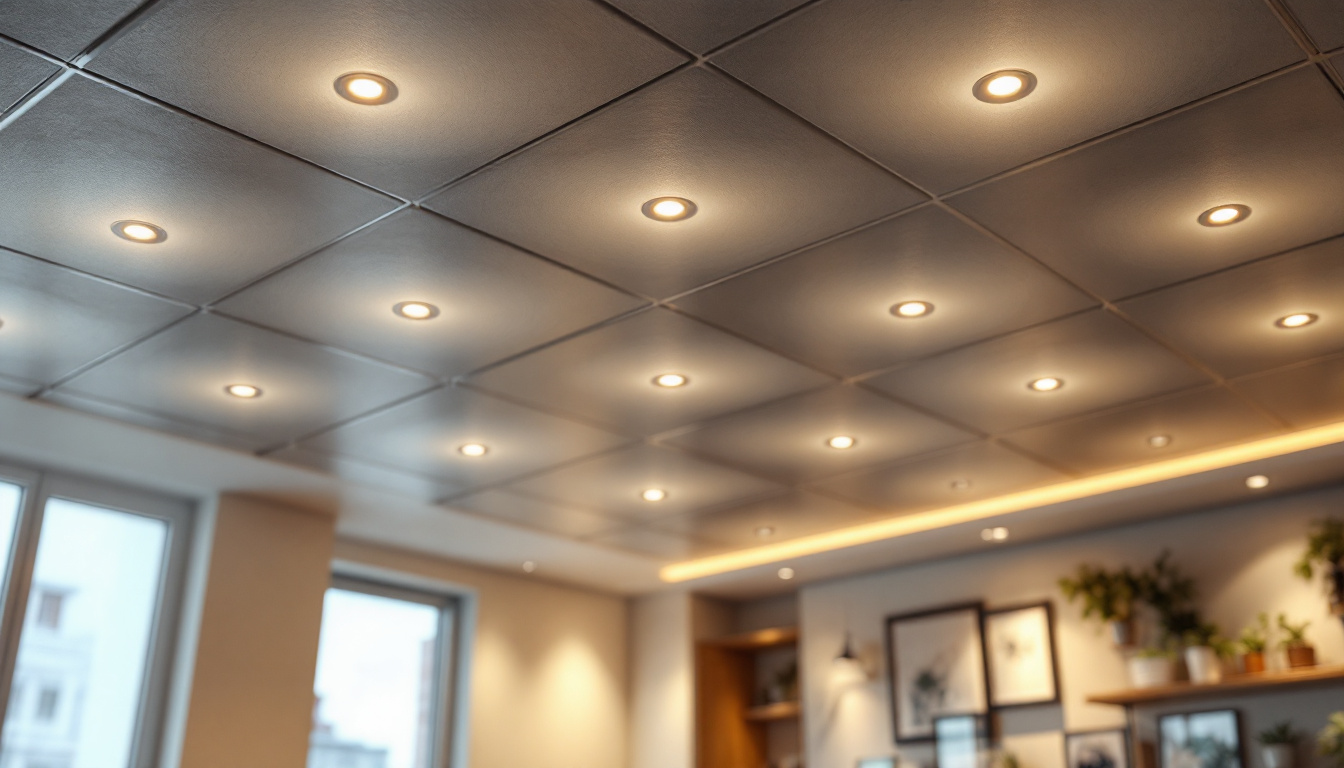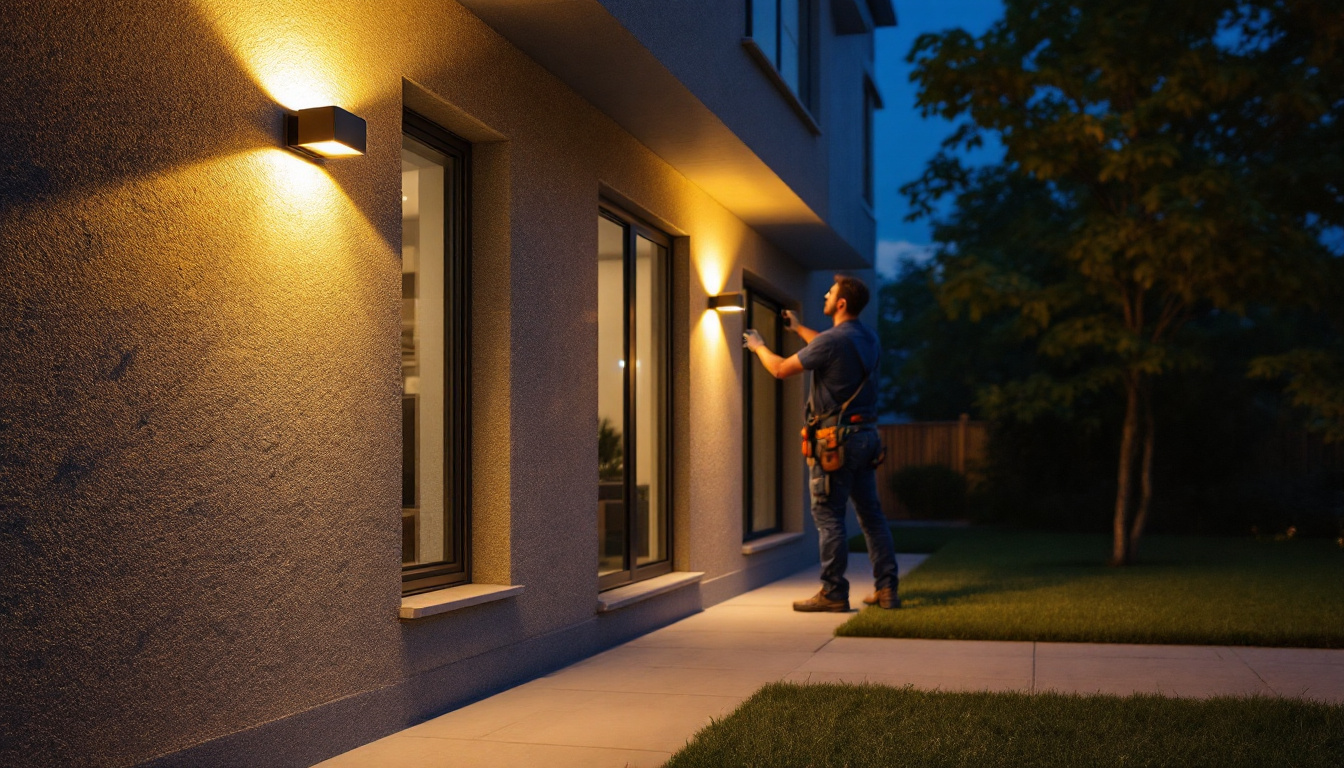
In the ever-evolving world of lighting design and installation, lighting contractors play a pivotal role in transforming spaces through effective illumination. Mastering the art of lighting not only enhances the aesthetic appeal of a space but also improves functionality and energy efficiency. This article delves into the essential aspects that lighting contractors need to master to excel in their field.
Before diving into advanced techniques, it is crucial for lighting contractors to have a solid understanding of the fundamental principles of lighting. This knowledge serves as the foundation for all subsequent learning and application. A firm grasp of these basics not only enhances a contractor’s skill set but also builds trust with clients who rely on their expertise to create functional and aesthetically pleasing environments.
Color temperature is a critical aspect of lighting that affects the mood and functionality of a space. Measured in Kelvin (K), the spectrum ranges from warm (around 2700K) to cool (up to 6500K). Understanding this spectrum allows contractors to select the right bulbs for different environments. The psychological impact of color temperature cannot be overstated; it can influence emotions, productivity, and even social interactions within a space.
For instance, warm light is often preferred in residential settings for its cozy and inviting feel, while cooler light is more suitable for workspaces, promoting alertness and concentration. In addition, the use of color temperature can be strategically employed in retail environments to highlight products and create an engaging shopping experience. Mastery of color temperature enables contractors to make informed decisions that enhance the overall ambiance of a project, ensuring that each space serves its intended purpose effectively.
Lighting contractors should be familiar with various types of light sources, including incandescent, fluorescent, LED, and halogen. Each type has its own advantages and disadvantages, influencing factors such as energy efficiency, lifespan, and light quality. Incandescent bulbs, while providing a warm glow, are less energy-efficient and have a shorter lifespan compared to their modern counterparts. On the other hand, fluorescent lights are known for their efficiency but can sometimes emit a harsh light that may not be suitable for all settings.
LEDs, for example, are increasingly popular due to their long lifespan and energy efficiency. They also come in a variety of color temperatures and are available in dimmable options, allowing for greater flexibility in design. Understanding the characteristics of each type allows contractors to recommend the best solutions for their clients’ needs, balancing cost, performance, and sustainability. Moreover, as technology continues to evolve, staying updated on emerging lighting technologies, such as smart lighting systems, can provide contractors with a competitive edge in the industry, enabling them to offer innovative solutions that meet the demands of modern consumers.
A well-thought-out lighting plan is essential for any successful project. It involves not only the selection of fixtures but also the strategic placement of lights to achieve the desired effect. The right lighting can transform a space, making it more inviting, functional, and aesthetically pleasing. When designing a lighting plan, it’s crucial to consider the unique characteristics of the environment, including the architectural style, color palette, and intended use of the space.
Layering light involves combining different types of lighting—ambient, task, and accent—to create a well-rounded illumination scheme. Ambient lighting provides general illumination, task lighting focuses on specific areas for activities, and accent lighting highlights architectural features or artwork. Each layer plays a vital role in establishing the overall atmosphere and functionality of a room.
By mastering the art of layering light, contractors can create dynamic environments that cater to various functions and moods. This technique not only enhances visual interest but also improves the usability of spaces. For instance, in a living room, ambient lighting can create a warm and inviting atmosphere, while task lighting near reading nooks ensures that activities can be performed comfortably. Accent lighting can then be used to draw attention to a beautiful piece of art or a unique architectural element, adding depth and character to the overall design.
Incorporating lighting controls such as dimmers, timers, and smart home systems can significantly enhance the functionality and energy efficiency of a lighting design. These controls allow users to adjust lighting levels based on their needs and preferences. For example, a dimmer switch can create a cozy ambiance for movie nights, while bright task lighting can be activated for cooking or studying.
Lighting contractors should stay informed about the latest technologies in lighting control systems. By doing so, they can offer clients customized solutions that improve convenience and reduce energy consumption, ultimately leading to cost savings and increased satisfaction. Additionally, integrating smart lighting solutions can allow homeowners to control their lighting remotely through mobile apps or voice commands, making it easier to manage energy use and enhance security. As technology continues to evolve, the possibilities for innovative lighting designs will only expand, offering exciting new ways to illuminate spaces effectively.
As awareness of environmental issues continues to grow, energy efficiency and sustainability have become paramount considerations in lighting design. Contractors must be well-versed in energy-efficient practices to meet client demands and regulatory standards.
When selecting fixtures, lighting contractors should prioritize energy-efficient options such as LED bulbs and fixtures with high Energy Star ratings. These choices not only reduce energy consumption but also lower utility bills for clients.
Additionally, understanding the importance of natural light and how to incorporate it into designs can further enhance energy efficiency. Strategically placed windows and skylights can reduce reliance on artificial lighting, promoting a healthier and more sustainable environment.
Lighting contractors must stay informed about local codes and regulations regarding energy efficiency and sustainability. Compliance with these standards is essential for successful project completion and client satisfaction.
Familiarity with regulations also positions contractors as knowledgeable professionals in the field, instilling confidence in clients. This expertise can lead to repeat business and referrals, ultimately contributing to the contractor’s success.
The lighting industry is constantly evolving, with new technologies and design trends emerging regularly. To remain competitive, lighting contractors must stay updated with these developments.
Participating in workshops, seminars, and online courses can provide valuable insights into the latest advancements in lighting technology and design. Many organizations offer certifications that can enhance a contractor’s credibility and expertise.
By investing in continuing education, contractors can ensure they are equipped with the knowledge and skills necessary to meet the changing demands of the industry. This commitment to professional growth not only benefits the contractor but also enhances the quality of service provided to clients.
Building relationships with other professionals in the lighting industry can provide contractors with valuable resources and insights. Networking opportunities can arise from industry events, trade shows, and online forums.
Engaging with peers allows contractors to share knowledge, discuss challenges, and explore collaborative opportunities. This sense of community fosters growth and innovation within the industry, ultimately benefiting all involved.
Strong customer relationships are essential for the long-term success of any lighting contractor. Building trust and rapport with clients can lead to repeat business and referrals.
Clear and effective communication is key to understanding client needs and expectations. Lighting contractors should take the time to listen to their clients, asking questions to clarify their vision and requirements.
Providing regular updates throughout the project can also enhance transparency and build trust. Clients appreciate being kept in the loop, and this proactive approach can lead to a more positive overall experience.
Every client has unique needs and preferences when it comes to lighting. By offering personalized solutions tailored to individual requirements, contractors can demonstrate their commitment to client satisfaction.
Taking the time to understand a client’s lifestyle, aesthetic preferences, and functional needs allows contractors to create customized lighting plans that resonate with the client. This level of personalization sets contractors apart in a competitive market.
While design is crucial, the installation process is equally important. Mastering installation techniques ensures that lighting systems function as intended and meet safety standards.
A solid understanding of electrical systems is essential for lighting contractors. Knowledge of wiring, circuit loads, and safety protocols ensures that installations are safe and compliant with regulations.
Contractors should also be familiar with troubleshooting common electrical issues that may arise during installation. This expertise not only enhances the quality of work but also instills confidence in clients regarding the contractor’s capabilities.
Attention to detail is a hallmark of a skilled lighting contractor. Ensuring that fixtures are installed at the correct height, aligned properly, and functioning as intended can make a significant difference in the final outcome.
Contractors should take the time to double-check their work and perform thorough testing before project completion. This commitment to quality assurance reflects professionalism and enhances client satisfaction.
Mastering the art of lighting is a multifaceted endeavor that requires a combination of technical knowledge, design skills, and effective communication. By understanding the fundamentals of lighting, designing effective plans, prioritizing energy efficiency, staying updated with industry trends, enhancing customer relationships, and mastering installation techniques, lighting contractors can excel in their field.
As the lighting industry continues to evolve, those who embrace ongoing education and adapt to new technologies will thrive. Ultimately, the goal is to create spaces that not only illuminate but also inspire, ensuring that every project leaves a lasting impression on clients and enhances their environments.
Ready to take your lighting projects to the next level? At LumenWholesale, we provide lighting contractors like you with the highest quality, spec-grade lighting products at unbeatable wholesale prices. Say goodbye to local distributor markups and hello to a vast selection of reliable, high-performance lighting that meets the most rigorous industry standards. With free shipping on bulk orders, you can stock up on premium lighting solutions at the best value — all without hidden fees or compromises. Elevate your lighting designs and installations with the perfect blend of quality, affordability, and convenience. Wholesale Lighting at the Best Value is just a click away. Transform your spaces with LumenWholesale today.

Discover expert strategies from top lighting contractors on installing recessed lighting in drop ceilings.

Discover how solar-powered pathway lights are revolutionizing the work of lighting contractors by offering sustainable, cost-effective, and easy-to-install solutions.

Discover why every lighting contractor should stay updated on 6 foot LED technology.

Discover the top strategies lighting contractors use to enhance security and aesthetics with exterior LED motion sensor lights.